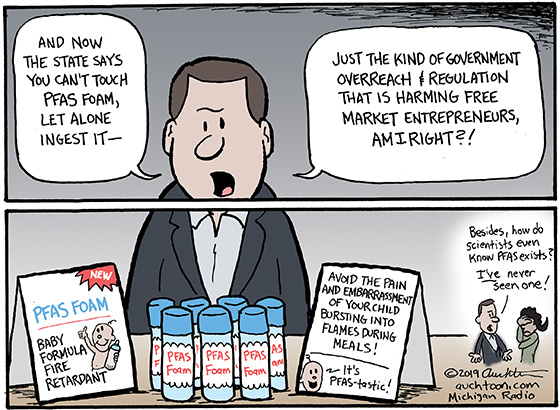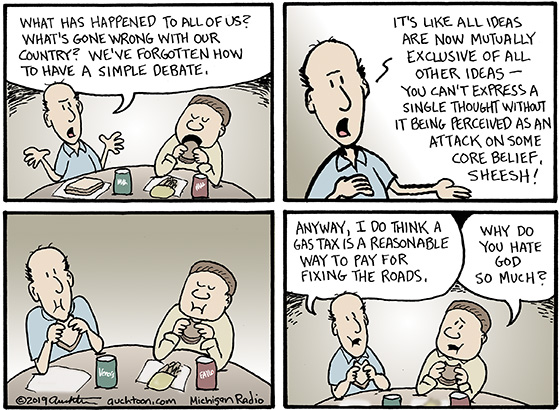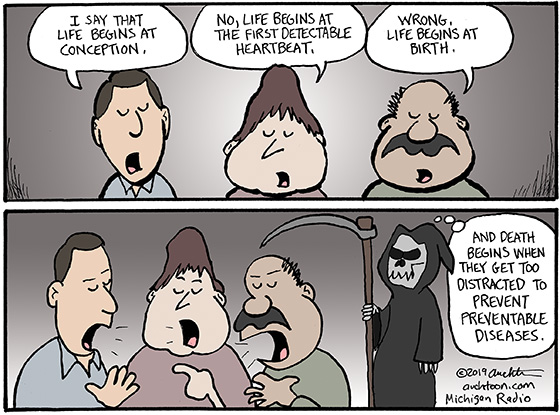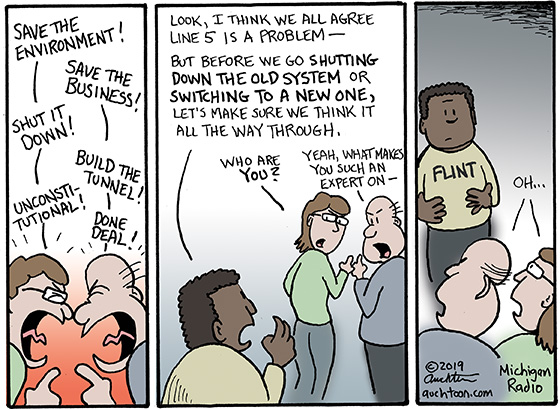The One Thing That Brings Us Together

Sports is often the last refuge for civil conversation. Politics, race, religion are practically no-go zones these days. But even seemingly benign topics like health or even the weather are pocked with landmines:
“It’s a bit chilly today.”
“Yes, it is — so much for your dumb global warming theories!”
And now we have one less good thing to talk about. John Beilein announced this week that he’s leaving his position as coach of the University of Michigan Men’s Basketball team to become head coach of the NBA’s Cleveland Cavaliers.
Beilein is universally recognized as a great coach and a standup person (a distressingly rare combination in Division 1 sports). So there’s a certain sadness to seeing him go — he’s the type of person that every Michigander could feel good about, not just Wolverines fans.
But I don’t begrudge Beilein for taking advantage of this new career opportunity. He has certainly earned it. It’s just that…Cleveland! Frickin’ Ohio! C’MON!!! The stupidest team in the stupidest state in the stupidest…sorry. Gotta try to keep it civil for Coach Beilein.










